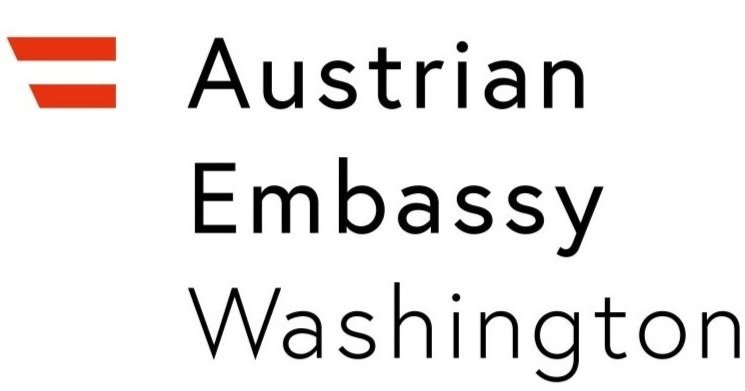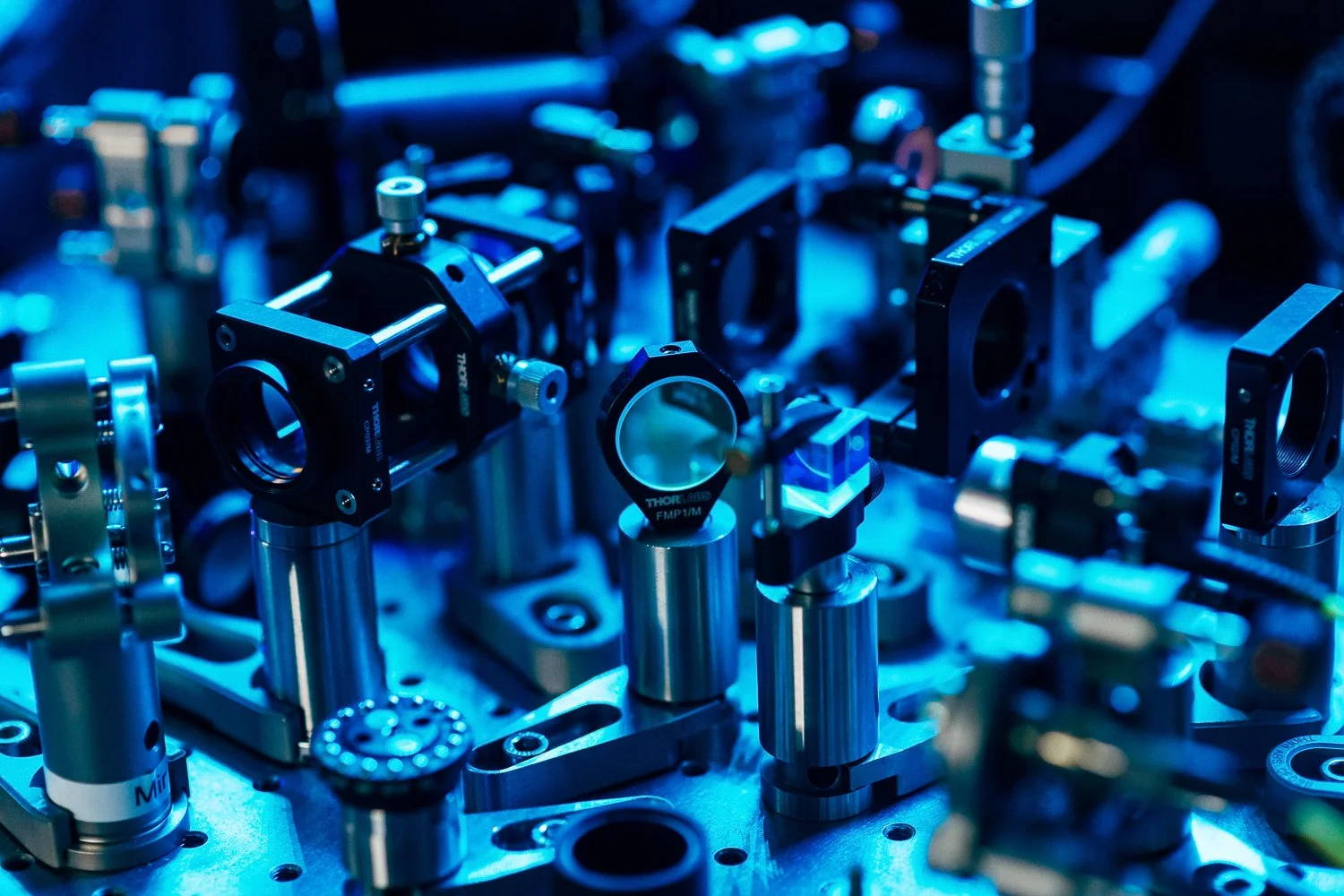20 Years and a Nobel Prize
Anton Zelinger accepts the Nobel Prize in Physics in 2022.
Photo: Photo: OAW/IQOQI
The Institute of Quantum Optics and Quantum Information (IQOQI) of the Austrian Academy of Sciences recently celebrated its 20th anniversary - and a success story. IQOQI stands for cutting-edge research, groundbreaking discoveries and a Nobel Prize in 2022. The institute is also successful worldwide in the commercial utilization of its research results.
When the Austrian Academy of Sciences (OeAW) founded the Institute of Quantum Optics and Quantum Information (IQOQI) in close collaboration with the universities twenty years ago, the goal was clear: to create a place in Austria for the theoretical and experimental quantum optics and quantum information research that had been newly developed in the 1990s, with the highest standards. The IQOQI was to become one of the world's leading research centers and strengthen Austria's reputation as "the quantum country" in the long term.
The research institutes are closely linked to the universities in Innsbruck and Vienna and offer the scientists involved the freedom to implement new and bold ideas and approaches. "This is extremely important, because sometimes you simply need time to pursue an idea without knowing exactly where the journey will take you," says Gerhard Kirchmair, Managing Director of IQOQI Innsbruck.
Nobel Prize for Co-Founder Anton Zeilinger
The founding fathers of the institute were all pioneers of Austrian quantum physics: Anton Zeilinger, the first scientific director of the IQOQI in Vienna, published a paper on the first teleportation of a photon in the journal Nature back in 1997. Further world records in quantum entanglement followed. In 2022, Zeilinger, who still heads a research group at IQOQI today, was awarded the Nobel Prize in Physics for his work on quantum entanglement.
The founding team of scientific directors at the IQOQI in Innsbruck consisted of Peter Zoller, who, together with his colleague Ignacio Cirac, first proposed the realization of a quantum computer using ions in Paul traps in 1995; Rainer Blatt, who constructed the basic building blocks of such a computer in the laboratory; Rudolf Grimm, who in 2003 realized the world's first Bose-Einstein condensate made of caesium atoms, which provided new insights into quantum matter; and Hans Briegel, who developed the measurement-based quantum computer and laid the foundation for a future quantum internet with the idea for quantum repeaters.
A Cutting-Edge Think Tank
Since then, pioneering work has been carried out at the highest level in Innsbruck and Vienna. "Austria plays a leading role in quantum research worldwide," says Heinz Fassmann, President of the Austrian Academy of Sciences. "Such a leading position in international research does not come out of nowhere. An excellent environment where the best minds with the best infrastructure can develop the best ideas was and is important for this path to success. Our Austrian Academy of Sciences institutes are such a place. They have made a significant contribution to making Austria one of the leading countries in quantum physics."
This level of achievement is corroborated by several hard facts. For many years, Hannes Pichler, Rainer Blatt and Peter Zoller from IQOQI Innsbruck, and Anton Zeilinger and Markus Aspelmeyer from IQOQI Vienna have been on the list of "Highly Cited Researchers". It represents the 1% of researchers worldwide whose work has been cited most frequently in recent years. IQOQI in Innsbruck and Vienna also became part of the Cluster of Excellence Quantum Science Austria (quantA), which was founded in 2023 and is funded by the Austrian Science Fund (FWF). Furthermore, ten of the prestigious and generously endowed grants from the European Research Council (ERC) have gone to the IQOQI institutes.
"We have created an atmosphere in which unconventional thinking is explicitly allowed and encouraged. It is important to think 'out-of-the-box'," emphasizes Markus Aspelmeyer, Managing Director at IQOQI Vienna. "A key factor for us is our work with young talent. We support several junior groups who conduct independent research at our institute for up to five years."
Photo: OAW/IQOQI
Einstein and Exotic Matter
In eleven research groups at the two locations, scientists are researching open questions of the subject, from new quantum states of matter to the philosophical foundations of quantum phenomena, which often contradict our notions of everyday understanding.
At the Institute in Vienna, a new research focus on the quantum physics of gravity and space-time has recently been established to investigate the intersection between Einstein's general theory of relativity and the role of space and time in quantum theory. To this day, it is still unknown whether the laws of quantum physics also apply to gravity.
In Innsbruck, scientists are working to push the boundaries of understanding in quantum optics, quantum simulation and quantum information, which has already led to significant research results, such as the discovery of exotic supersolid states of matter or the control of so-called many-body dark states. "The synergy between theory and direct experiment is a particular hallmark of our research approach. Within our institute, we promote collaborative structures and the exchange of ideas between groups, which creates a very lively and effective research environment," says Francesca Ferlaino, who has been a scientific director of the institute since 2014.
From Fundamental Research to Founding a Company
Quantum physics is already used in many technologies today, such as lasers, magnetic resonance imaging (MRI), GPS and cell phones. Basic research is now increasingly giving rise to new direct commercial applications. Several start-ups and spin-off companies have already emerged from quantum research conducted at the Austrian Academy of Sciences, including ParityQC, Quantum Technology Laboratories (qtlabs), Quantum Industries (QI) and Alpine Quantum Technologies (AQT). ParityQC is the first company in the world to offer blueprints and an operating system for highly scalable quantum computers on the open market. Qtlabs and QI focus on the technical implementation of methods for quantum encryption and quantum communication via both satellites and fiber optic cables. And the Innsbruck-based start-up Alpine Quantum Technologies (AQT) develops and builds quantum computers and quantum hardware components, which they also make available to companies and public institutions via a cloud solution.
Heinz Fassmann comments: "The Academy welcomes the further utilization of research results. We therefore help with patenting and we support the founding of spin-offs. Successful examples such as the company ParityQC in the field of quantum physics also show that the boundary between basic research and applied research is an arbitrary one. The results of basic research lead to innovative products and technologies, even if this was not planned at the beginning of the research process."
"It is always breathtaking to see completely new technologies emerging from 'blue-sky research'," says Caslav Brukner, scientific director at IQOQI Vienna, emphasizing how this in turn stimulates further research. "At the same time, these developments allow us to address previously elusive research questions." According to Brukner, it is often the most fundamental questions that can produce groundbreaking results: "Our research is dedicated to the most fundamental questions of modern physics - and could one day be the starting point for the next quantum revolution."
Photo: ÖAW/IQOQI





